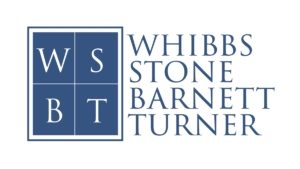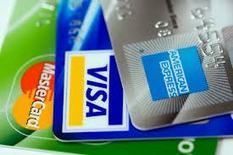Bankruptcies are Likely to Increase because of the Coronavirus
The COVID-19 pandemic is not only a public health emergency, it is an economic disaster as well. Millions of businesses across the country that are considered non-essential have had to close their doors, including many restaurants, bars, coffee shops, retail stores, hair salons, nail salons, and any other business that involves large groups of people and/or people that are in close contact with each other. This has resulted in tens of millions of job losses with the prospect of many businesses not being able to reopen again once this is all over.
The government has responded to the economic crisis this has caused by passing the most expensive stimulus plan in American history. The $2.2 trillion stimulus bill will provide a $1200 check to most Americans, unemployment benefits up a worker’s full salary for four months, and disaster loans and grants to small businesses through the SBA. Right now, the question on everyone’s mind is – will all of this be enough to bring our economy back?
Because this situation is unprecedented and we do not know how long the parts of our economy that are considered “nonessential” will remain shut down, no one really knows the answer to that question. Some say the economic shutdown (in response to the COVID-19 outbreak) will have the effect of a major natural disaster and the economy will quickly bounce back. Others say that it will trigger a deep recession or even Great Depression-like conditions that will go on for an extended period of time.
While we cannot predict the final economic outcome after the coronavirus situation passes, one thing we can be pretty sure of is that this will force a large number of individuals and businesses to file for bankruptcy. As of the fourth quarter of 2019, American consumers had more than $14 trillion in household debt. This is more than $1 trillion higher than the Great Recession peak of $12.68 trillion during the third quarter of 2008.
Up until a month or so ago, the main difference between now and the Great Recession of 2008 was that most Americans today were working and generally able to keep up on their debt payments. Of course, the coronavirus pandemic has changed all this. Right now, many families are in survival mode, using even more of their unsecured debt to secure essential household goods to get them through the crisis. And with job losses and less income coming in, it may get more difficult to maintain these payments.
The stimulus check and unemployment payments will help, but will that be enough? What happens when the stimulus payment has long been spent and the unemployment runs out before you can find work again? This is a distinct possibility for many Americans if a significant number of businesses do not come back after the economy reopens.
It is also important to note that some people will not receive a stimulus payment, and some were already without a job before all of this started and therefore do not have access to the enhanced unemployment benefits provided by the stimulus bill. For these folks, recovering financially after the COVID-19 pandemic will be even more difficult.
When Does it Make Sense to Consider Bankruptcy?
Filing for bankruptcy can be a good way to obtain a fresh start during hard financial times. And in the midst of the COVID-19 pandemic, many good people will be caught in a situation where they have a large amount of debt and insufficient income to get out from under it.
It may be a good idea to consider bankruptcy if any of the following situations apply to you:
- You are using credit cards to purchase everyday necessities;
- You are using cash advances and/or balance transfers from one credit card to pay another;
- You cannot afford the minimum payments on all of your unsecured debts;
- Your job prospects are dim because of the coronavirus situation;
- You are thinking about cashing out part or all of your retirement account to make ends meet;
- Your debt is causing a major amount of stress that is detrimental to your health.
Chapter 7 bankruptcy can fully discharge most unsecured debts, allowing you to start over and regain control of your financial life. That said, there are consequences to going this route. For starters, your credit will be damaged for a while, but if you are in dire financial straits, you probably already have some dings on your credit score.
Secondly, you can only file for Chapter 7 once every eight years, so you should have a plan to stay out of financial trouble, so you do not end up in this situation again. Chapter 7 also requires that you liquidate non-exempt assets, which means you could lose some of your personal property by going bankrupt. And if your income is too high, you may not qualify for this option.
For those who do not qualify for Chapter 7, Chapter 13 bankruptcy may also be an option to consider. Chapter 13 is essentially a court-managed debt consolidation plan in which you pay back your debts with one manageable monthly payment over a pre-determined period of time. This option is more ideal for those who may have accumulated a significant amount of debt but will still have a decent income after the COVID-19 situation is over.
Filing Bankruptcy while Maintaining Social Distance
If you are considering filing for bankruptcy in Pensacola during midst of this ever-evolving coronavirus pandemic, it is best to start by speaking with one of the experienced attorneys at Whibbs, Stone, & Barnett. We are continuing operations while taking all of the precautions and following all Florida social distancing guidelines. The initial consultation and most of the other steps can be done remotely, and the bankruptcy courts are currently conducting Trustee 341 meetings by telephone.
Call our office today at 1-888-219-4561 or message us online to schedule a free consultation with a member of our legal team. Now more than ever, we are here to help get you through this difficult time.



